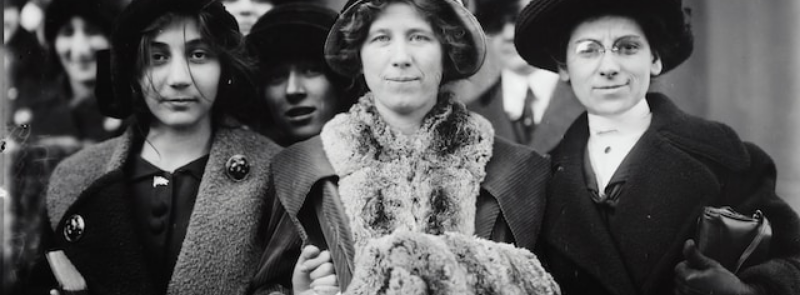
When It Occurs
Every June 24th
Timeline
Days Passed (125)
# Hashtags
#InternationalDayOfWomenInDiplomacy #GenderEquality
Annually observed on June 24th, the International Day of Women in Diplomacy (IDWID) pays tribute to women who have made significant contributions to global diplomacy and decision-making processes.
The United Nations General Assembly officially designated June 24th as the International Day of Women in Diplomacy during its 76th Session. This day serves as an advocate for promoting greater representation of women in crucial decision-making roles.
Origins and Purpose
- Inception: The International Day of Women in Diplomacy was established to honor the achievements and contributions of women in diplomatic service and to promote gender equality and diversity in diplomacy.
- Purpose: The primary purpose of the International Day of Women in Diplomacy is to:
- Recognize the role of women diplomats in shaping foreign policy, promoting peace, resolving conflicts, and advancing global cooperation and diplomacy.
- Raise awareness about the challenges and barriers faced by women in diplomatic careers, including gender bias, discrimination, and underrepresentation in leadership positions.
- Advocate for gender equality, inclusion, and empowerment in diplomatic institutions, policies, and practices to create a more diverse and effective diplomatic workforce.
Celebrations and Activities
- Panel Discussions and Conferences: Diplomatic organizations, academic institutions, and think tanks may organize panel discussions, seminars, or conferences on women in diplomacy, addressing issues such as gender equality, leadership, and career advancement.
- Networking Events: Women diplomats and professionals may participate in networking events, mentorship programs, or professional development workshops to connect with peers, share experiences, and build supportive networks.
- Recognition Ceremonies: Governments, diplomatic missions, and international organizations may hold recognition ceremonies or awards events to honor outstanding women diplomats for their contributions to diplomacy and international relations.
- Public Awareness Campaigns: Diplomatic institutions and advocacy groups may launch public awareness campaigns, social media initiatives, or digital storytelling projects to highlight the achievements and stories of women diplomats.
- Training and Capacity Building: Diplomatic academies and training institutes may offer specialized programs, courses, or training sessions to enhance the skills, knowledge, and leadership capabilities of women diplomats.
Importance of Women in Diplomacy
- Representation and Diversity: Women diplomats bring diverse perspectives, experiences, and skills to diplomatic negotiations, policymaking, and international relations, enriching dialogue and decision-making processes.
- Conflict Resolution and Peacebuilding: Women diplomats play a crucial role in conflict resolution, peacekeeping, and peacebuilding efforts, advocating for inclusive and sustainable peace processes that address the needs and rights of women and marginalized groups.
- Promotion of Human Rights: Women diplomats champion human rights, gender equality, and women's empowerment in diplomatic engagements, advocating for the protection and promotion of women's rights and dignity on the international stage.
- Advancement of Sustainable Development: Women diplomats contribute to the advancement of sustainable development goals, including poverty eradication, education, healthcare, and environmental sustainability, through diplomatic initiatives and partnerships.
- Role Models and Mentors: Women diplomats serve as role models and mentors for future generations of diplomats, inspiring young women to pursue careers in diplomacy and leadership roles in international affairs.
Challenges Facing Women in Diplomacy
- Gender Bias and Stereotypes: Women diplomats encounter gender bias, stereotypes, and cultural barriers that may limit their career advancement opportunities, recognition, and influence in male-dominated diplomatic institutions.
- Underrepresentation in Leadership: Women are underrepresented in leadership positions in diplomacy, including ambassadorial roles, foreign ministries, and international organizations, reflecting systemic barriers to women's advancement and leadership.
- Work-Life Balance: Women diplomats face challenges in balancing their professional responsibilities with family obligations and caregiving roles, particularly in postings abroad that require mobility and relocation.
- Harassment and Discrimination: Women diplomats may experience harassment, discrimination, or gender-based violence in diplomatic environments, requiring policies and mechanisms to address workplace harassment and ensure a safe and respectful work environment.
- Glass Ceiling: Women diplomats confront the "glass ceiling" phenomenon, where invisible barriers hinder their career progression and limit their access to top diplomatic positions and decision-making roles.
Conclusion
The International Day of Women in Diplomacy serves as a reminder of the invaluable contributions and achievements of women diplomats in shaping international relations, promoting peace, and advancing global cooperation. By celebrating the accomplishments of women in diplomacy, advocating for gender equality and empowerment, and addressing the challenges faced by women diplomats, we can create a more inclusive, diverse, and effective diplomatic workforce that reflects the full spectrum of human talent and leadership. So let's honor and support women in diplomacy on the International Day of Women in Diplomacy and every day, as we work together to build a more equitable and peaceful world.


